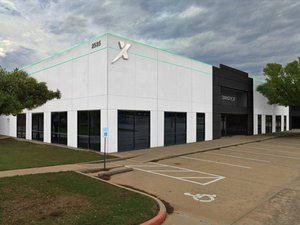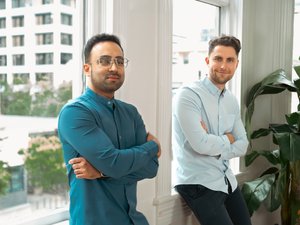Even during SXSW, where free food is just about everywhere, a hidden rule lies beneath it all: There is no such thing as a free lunch.
Matt Droter, CEO and Founder of ROS Agriculture, agrees… to an extent. Droter is working transform food production similar to how aluminum was transformed in the late 1800s.
“Aluminum used to be the most expensive metal in the world,” he said. “But, through technology, it became disposable. We are trying to do the same thing with food, using robots powered by ROS.”
ROS stands for Robot Operating System, an open source ecosystem of robot enthusiasts. ROS software has actually been used in manufacturing, self-driving cars, and on the International Space Station.
But Droter wants to take it one step further. He wants to use ROS to democratize food production, by providing food access to everyone, and, in the process, help solve problems for farmers.
It sounds like an incredible idea, but what does it mean in practice?
“There are a number of issues with agricultural labor today including monotonous jobs that do not pay a lot of money to the workers that perform those tasks and unsafe working conditions at those jobs,” Droter said. “Instead of keeping them in poverty and performing these tasks over and over again, we want to empower them through robotics.”
Droter is more than qualified to lead the charge. He created and managed a successful biological experiment onboard the Space Shuttle Endeavor STS-77, growing a plant while it was in orbit. And he worked as a researcher on a NASA-backed project that focused on hydroponic wheat and water reclamation. He also started a spin-off company based on his research of infrared transducers to measure plant canopy temperatures.
His experiences with cutting edge production methods help him approach the future of farming with a a radical new way of thinking.
The goal for Droter and his team is about providing access, both in providing food to everyone, but also to increase the value of those workers who are working to pick produce, often in extreme temperatures and poor conditions. And worker shortages have historically led some farmers to leave as much as a third of their strawberry crops in the field.
"With this, combined with some of the other issues plaguing the industry, farmers are going autonomous, and it’s hurting society as a whole," Droter said.
Robots have mainly been used in research, but Droter feels that by providing access, whether that is providing robotics classes to high school and college students and teaching them about farming, and teaching laborers about robotics, this new technology can help impact farming worldwide. (View ROS Agriculture's GitHub page)
“People are starving to death, and there’s no reason we can’t use robotics to help alleviate this problem," he said. "Robotics is at a level where everyone can participate -- you can even program the ROS software with puzzle pieces, for little kids, or on a $200 Chromebook. There’s no limit to what we can do with it.”








